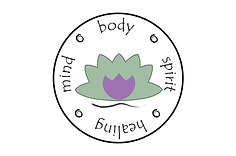Tips and Resources for Preventing Anxiety Attacks
- Jun 5, 2022
- 3 min read

If you are prone to panic or anxiety attacks, you're not alone. According to the National Institutes of Mental Health, more than 30 percent of all adults experience anxiety attacks at some point in their lives. Such events are most common among people between the ages of 20 and 60, and women are twice as likely to experience panic attacks. However, they can happen to anyone at any time. Most people who suffer anxiety attacks are only mildly or moderately affected. However, between one-fifth and one-quarter of people are seriously impaired because of these episodes. If you’re looking for ways to help prevent and control anxiety attacks, this article presented by Lotus Counseling and Wellness Center, LLC can get you started.
What is a Panic Attack and How Does it Start?
Imagine you are a Stone Age cave-dweller. One day, you're out hunting and gathering and find yourself confronted by a saber-toothed tiger. All at once, your heart starts racing and blood pressure rises. You start sweating and your hands get clammy. At the same time, everything looks sharper and brighter. You may start shaking, feeling on edge, and even lose bladder control.
This is the classic "fight-or-flight" reaction. For hundreds of millions of years, it has helped animals — including those of the genus homo — to survive dangerous, life-threatening situations. When our cave-dweller sees the tiger, that information registers with the amygdala, the primitive, survival-oriented part of the brain. The amygdala then sends messages to the adrenal gland via the involuntary muscle system, preparing the body for action - either to do battle or run.
While we humans have changed a lot since the Stone Age, our amygdalas have not. The amygdala cannot discern between a saber-toothed tiger and an angry supervisor, a rude driver, or a complaining customer. Not surprisingly, job-related situations are frequent triggers for anxiety attacks.
What You Can Do About Workplace Anxiety
If your job or career is making you anxious or causing panic attacks, consider making a change. This may involve returning to school, but with today's online education programs, it's easy to attend classes and earn a degree from home while continuing in your present job. You can find degree programs in the fields of health care, business administration, and environmental science, to name just a few.
You can also prepare for your new career by updating your resume. This is often a difficult task, but today, it is easy to create a professional-looking resume by utilizing a resume builder online. Many of these are free to use; some charge a nominal fee. These sites offer extensive libraries of professionally designed templates, to which you can easily add your own text and images.
Dealing With Anxiety in General
It's normal for people to get the jitters occasionally, but if anxiety attacks are interfering with your life, there are several options. One of these is to change your diet. You don't have to do anything radical, but it's a good idea to avoid processed foods, sugar, and red meat. At the same time, minimize your intake of alcohol and caffeine, as these can make anxiety even worse.
It's also a good idea to avoid looking at the news. The media is primarily in business to create the kind of fear that sells advertising; very few world or national events affect us personally — so why stress out about them?
Taking time out for self-care, avoiding triggers, and making career changes are all ways we can minimize the stress in our lives and avoid panic attacks.
~by Dorothy Watson




.jpg)



Comments